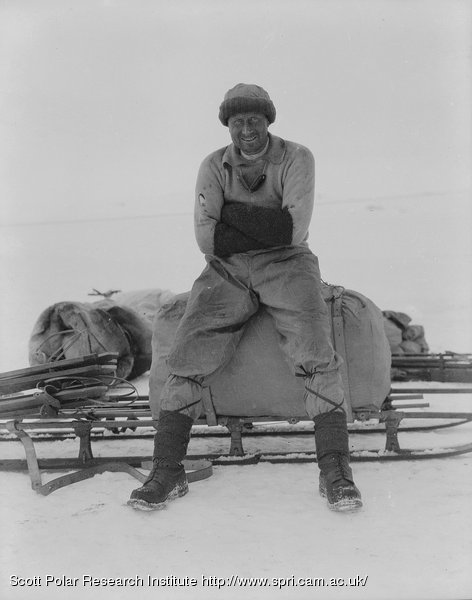The brisk and clear Norwegian air may have been refreshing, but sadly it did little to fight Wilson's TB, so the original plan of going for treatment at Davos was put into effect. Wilson found the drab, snow-bound alpine town depressing, and the confinement with tubercular company and conversation even more so:
The conversation is all about bacilli and hearts and weights and expectoration, so that one hardly dare clear one’s throat without feeling that someone has said something tuberculous; still more, I think, the want of a smoke begets a desire to bite everybody and run away.
from Edward Wilson of the Antarctic, pg 51
He was forbidden from outside exercise for a while as it got his temperature up, removing a great joy and source of inspiration, which didn't help:
I am convinced that the sitting still and stuffing and lying out system of cure does kill some people as surely as it cures others. The killing part about it is the lack of occupation ... terribly depressing and demoralizing.
— pg 55
When at last he was allowed a little freedom he may have taken it a
bit too far, starting with a six-mile walk along a mountain road in the dark, followed shortly by an escapade on a snowy mountainside:
So the care with which I felt my heels hold at each step was phenomenal, but useless, for a few yards lower the snow slid with me on the rock, and in a few seconds the pace took my breath away. For twenty or thirty yards I kept my balance with my elbows, and all I said or thought was ‘You must keep your head and go feet first, but you must keep your head.’ Then my heels caught in something, and I shot out head first, sliding, rolling, and bouncing clean into the air; and all at such a giddy pace and in such a cloud of snow and with one bump after another that I hadn’t time to think at all. ... If you saw [my face] you really would say ‘disgusting,’ for I have scraped the skin off it ... such a beastly mess all over the place. I put up two white ptarmigan at the bottom as a reward for slipping, quite sufficient to make it worthwhile. ... And my cap came slowly sliding down with a tuft of campanula in it. A walk of eight miles home. It was an experience worth having — once.
– cobbled extracts from his journal and a letter, found in Edward Wilson of the Antarctic, pg 53-4

For all that his time in Davos was a challenge physically and emotionally, it was, in the words of his biographer George Seaver, 'a period ... to which he always looked back as the most important in his life.' The forced inactivity drove him inward, and it was a time of intense study and spiritual work, forging in him 'that selfless reliability which so constantly sustained and inspired his comrades in the South, who, though unaware of its origin, noted in him "some mysterious force that triumphed, some faith that upheld" at all times of stress and emergency.' (Seaver, pg 56)
It also saw the blossoming of correspondence between Wilson and Oriana Souper, who he'd met briefly in London and had befriended when she took a job teaching in Cheltenham. Letters from 'O.' were cause for celebration and he was generous in his replies; though his doubtful health precluded any serious thoughts about a future together, a mutual understanding and affection was well established.





